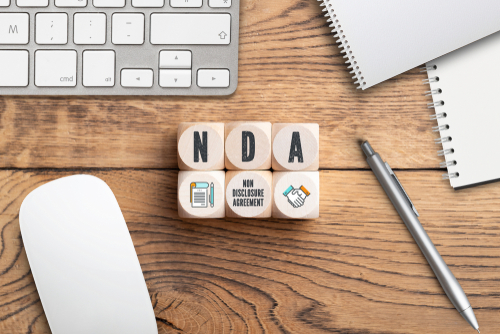Important Basics You Need to Know About Non-Disclosure Agreements
Important Basics You Need to Know About Non-Disclosure Agreements
If you’re new to the corporate world, you might be curious about the non-disclosure agreement that they made you sign along with your contract upon hiring. What is a non-disclosure agreement, and why are they holding you accountable for this signed document, in relation to the business or industry you are in?
What is a Non-Disclosure Agreement?
Otherwise known as NDA, this is a legally enforceable contract between the parties involved regarding the “confidential relationship” between the two. This means that there is information that must be kept private, and not shared with others outside of this relationship, or risk penalties or consequences.
Especially in business, where competition can be cutthroat and companies must quickly adapt and be able to beat the others for the attention of the target market, having an NDA for employees, preferably drafted by Provo business lawyers, is crucial.
The last thing a company would want is to have an employee resign from their role, only to switch to the competitor, bringing with them important trade secrets. With an NDA in place, the employee is prevented from sharing this information, which may be used to their disadvantage.
That’s why it’s also typical to have contracts with non-compete clauses. This is more restrictive in the sense that it says a former employee cannot move to a competitor from within the same industry. It does, however, only limit this ban for a limited period.
Typically, a business lawyer in Provo will set it at one to two years from the employee’s resignation from the previous company. Presumably, this allows for some time when the company updates its technology and processes. By the time the non-compete ban expires, the information that the former employee has will now be rendered useless and irrelevant.
NDA Coverage
The coverage of the NDA will also depend on the type of agreement. Basically, there are three types of NDAs:
Unilateral – the conditions and stipulations of the NDA are constructed unilaterally by one party. This is most commonly found in employer-employee contracts. Ideally, it should cover details such as:
- Business development plans
- Suppliers and merchandising systems
- trade/recipe secrets
- Data projections and analyses
- Upcoming campaigns or product launches, etc.
Bilateral NDAs, on the other hand, requires the involvement of both parties in their construction. Coverage may include crucial business details like joint ventures, mergers & acquisitions, company takeovers, stocks, and stakeholders, and more. Meanwhile, a multilateral NDA involves three or more parties.
What Should be In Your NDA
If you’re thinking of getting NDA for your business, the first thing you need to do is to identify what type of NDA you need. Are you running a business that requires sharing and handling sensitive and confidential information with your staff? Then you need a unilateral NDA.
In this case, you need to make sure that the document, drafted by credible Provo business attorneys, will clearly explain what the NDA is for, whom it applies to in relation to the contract, and for how long it will be applied. Any other stipulations must be included as well, such as specific prohibitions regarding how the information should be accessed, when it can be accessed, and the limitations surrounding the use of this information.
How your attorney can help create the agreement
The details of an NDA can get tedious and complex, which is why you should consult with Utah Non-Disclosure Agreement Attorneys. Your Provo Business Litigation lawyer from Howard Lewis & Petersen can help you with your Provo Business Non-Disclosure Agreement’s needs.
The sooner you consult with a business lawyer in Provo, the sooner you can smoothen out the specifics you want in your non-disclosure agreement.

